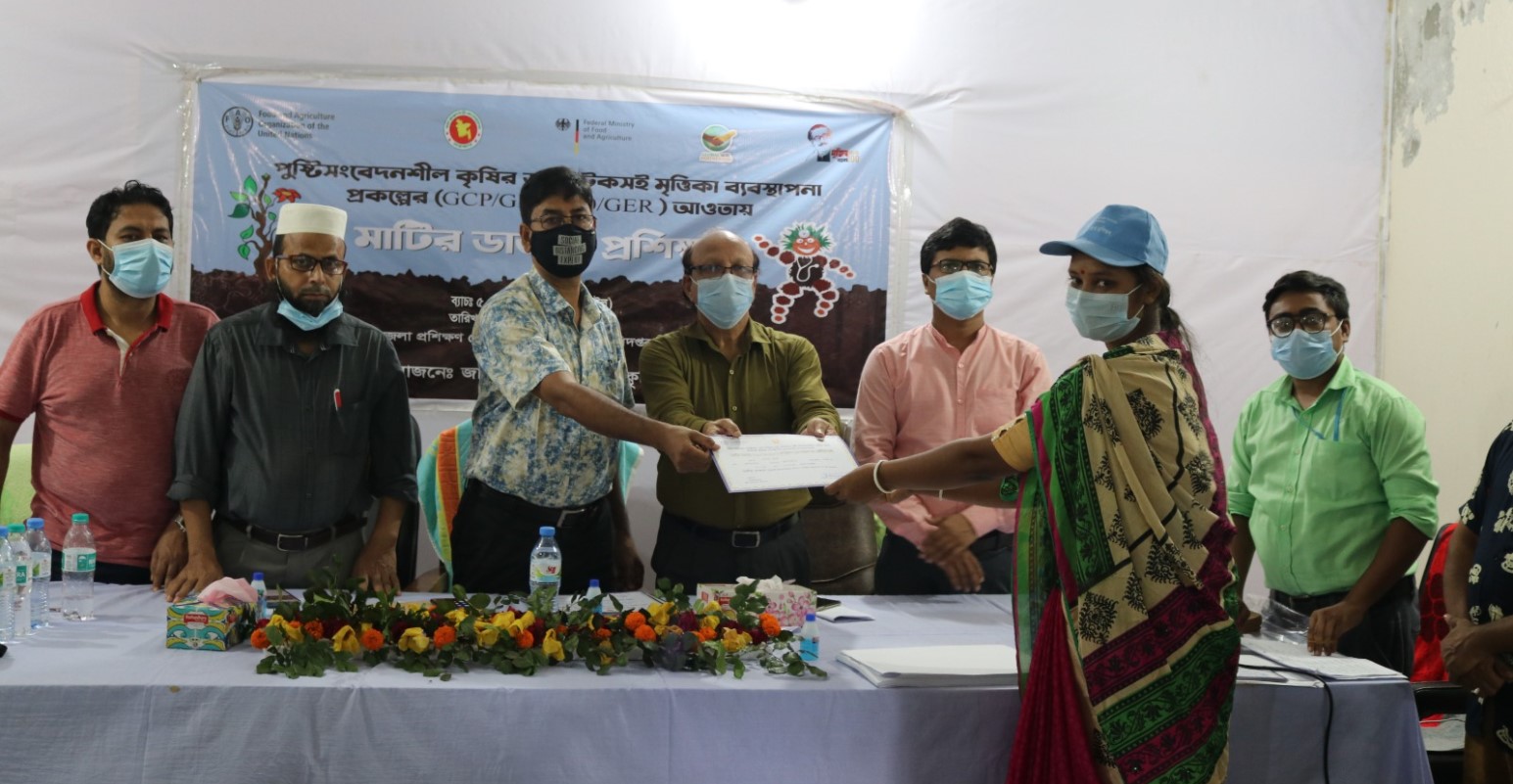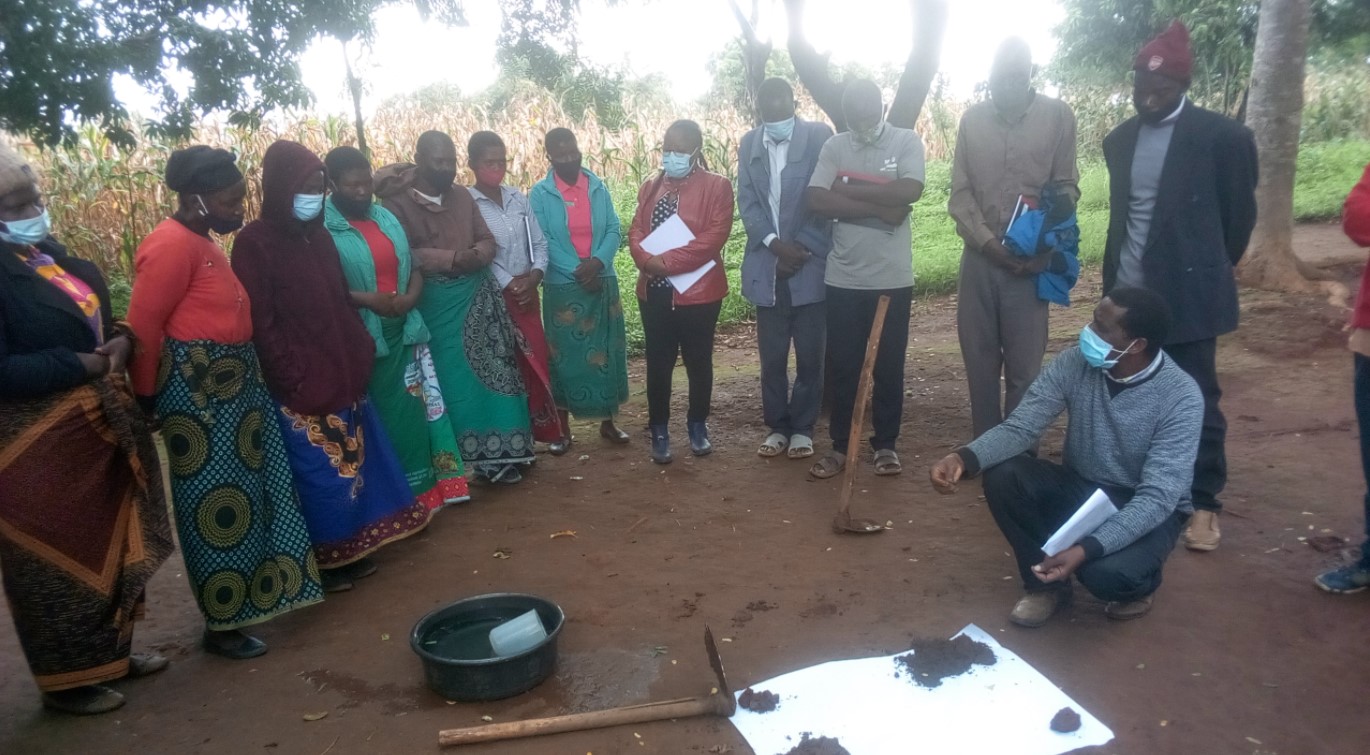Positioning the Soil Doctors Programme as a mechanism that matters
As the Soil Doctors Programme enters its second year, it has successfully scaled-up farmer-to-farmer training initiatives in Bangladesh, Malawi and Mexico. The Programme will continue to strike up robust partnerships for the benefit of smallholders, empowering them to scale-up cost-effective, sustainable soil management (SSM) practices.

Empowering farmers to safeguard sustainable soils
The Global Soil Doctor Programme is a farmer-to-farmer training initiative that was launched in 2020 under the framework of FAO’s Global Soil Partnership (GSP). The overall objective of the Programme is to strengthen the capacity of farmers on SSM principles by providing them with targeted training on how to preserve and restore good soil conditions and functions. It also contributes to raising awareness of soils globally.
These pilot schemes have illustrated the importance of establishing a strong working relationship between the GSP, the national promoter and the “champion” farmer – also known as a Soil Doctor – and selected to support and train other farmers in the local community.
Promoters are an essential component of the Programme and it is vital that they have an existing presence in the country so that they can offer solutions from knowledge, experiences, good practices, policies, technologies, and resources to extend them to their local communities. Promoters are made up of institutions such as governmental agencies, national extension services, soil science societies, universities, research centers, non-governmental organizations (NGOs) or farmers’ associations.
The national promoter acts as a bridge between the GSP and the Soil Doctors. The GSP initially trains the promoter so that s/he can go on to train the Soil Doctor. To facilitate this process, 30 posters have so far been prepared in several FAO and local languages along with practical exercises to help understanding and engagement.
The promoter’s contribution is essential when putting the Programme into action since his/her knowledge of local farming practices and cultural contexts allows messaging to be transmitted to individuals in a user-friendly manner.
Shinning the spotlight on Bangladesh, Malawi and Mexico

In Bangladesh, the Department of Agricultural Extension (DAE) acts as the promoter of the Soil Doctors Programme. The GSP has trained ten promoter trainers who are now official trainers of the Soil Doctors Programme. It has successfully skilled-up over 450 farmers and selected 15 Soil Doctors. Each Soil Doctor has received support and educational materials to conduct further farmer-to-farmer exercises on SSM, maximising the impact of the Programme over the long-term.
 In Mexico, the Ministry of Agriculture and the University programme for interdisciplinary soil studies have joined efforts and act as the national promoter. As of January 2022, the GSP has trained 32 promoter trainers who became official trainers of the Soil Doctors Programme.
In Mexico, the Ministry of Agriculture and the University programme for interdisciplinary soil studies have joined efforts and act as the national promoter. As of January 2022, the GSP has trained 32 promoter trainers who became official trainers of the Soil Doctors Programme.
Further developments of the Programme are underway with 50 farmers, and the training of Soil Doctors will be expanded in 2022.
In Malawi, the Ministry of Agriculture acts as the national promoter. To date, two promoter trainers have enrolled 240 farmers into the Soil Doctors programme.

The selected Soil Doctors in those three countries now use the posters to explain the significance of SSM to other farmers through field exercises, such as texture assessments, pH level estimations using baking soda and vinegar, and testing for soil organic matter using peroxide.
The Soil Doctors Programme is planning to extend similar pilot projects in Kazakhstan, the Gambia and Bolivia.
Related links:
- Posters
- Manual
- Photos: Bangladesh | Malawi | Mexico
